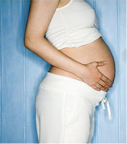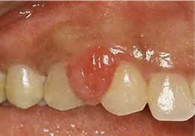Looking after your dental health during pregnancy

Pregnancy is such an exciting and busy time but what with morning sickness, antenatal classes, baby showers and numerous shopping trips your dental health could well be the last thing on your mind. However, it is even more important to look after your dental health during pregnancy. Changes in hormone levels mean that some dental health conditions specifically affect pregnant women. These are generally nothing to worry about but mean it is crucial to take extra care of your teeth and visit us regularly.
Did you know that NHS dental care is free from the time your pregnancy is confirmed right through to your child’s first birthday?
To get this free care, you will need to apply for your maternity exemption certificate and bring it with you to your appointments.
Gum Disease
Swollen gums, which may be sore and more susceptible to bleeding, are common during pregnancy. This inflammation of the gums is called pregnancy gingivitis and is caused by hormonal changes that increase blood flow to the gum tissue and also make them more susceptible to the effect of plaque bacteria. Good oral hygiene measures are essential to try and minimise these effects.
It can be scary to develop the symptoms of gum disease but with regular visits to your dentist and good oral care at home you can help to treat and manage the condition.
Some pregnant patients may develop a more localised swelling of the gums called a pregnancy epulis or granuloma. This is a benign (harmless) growth which is generally not painful but which bleeds very easily and can look quite nasty.

In most cases symptoms usually improve after birth when hormone levels return to normal.
Untreated gingivitis can lead to periodontitis, a more severe form of gum disease, where bone is lost from round the teeth so good oral hygiene is essential to try and prevent this.
Acid Erosion
If you suffer with morning sickness you may experience acid erosion. Basically vomit is acidic which means it will soften your teeth enamel. If you brush your teeth straight after being sick you are further damaging the enamel. It is recommended that you wait an hour after vomiting before brushing your teeth. Rinsing out with water will help dilute the acid and take away the taste.
Can I undergo dental treatment during pregnancy?
This is a common question we hear from pregnant women. Dental check-ups are perfectly safe during pregnancy, as are local anaesthetics. Preventative cleaning is not only safe, but also highly recommended for the reasons mentioned above. If you need antibiotics, your dentist can prescribe ones which are considered safe to take during pregnancy.
The Department of Health recommends that women don’t have amalgam fillings replaced while pregnant. Routine X-rays are also generally not recommended during pregnancy and can usually be postponed till after the birth. Some emergency procedures however such as root canal therapy may require an X-ray to be done during pregnancy . Your dentist will discuss all of your options with you.
General Practitioners say that the most ideal time for patients to get treatments is during the second trimester of their pregnancy, as you may experience difficulty lying on your back during the third trimester.
Go Back


